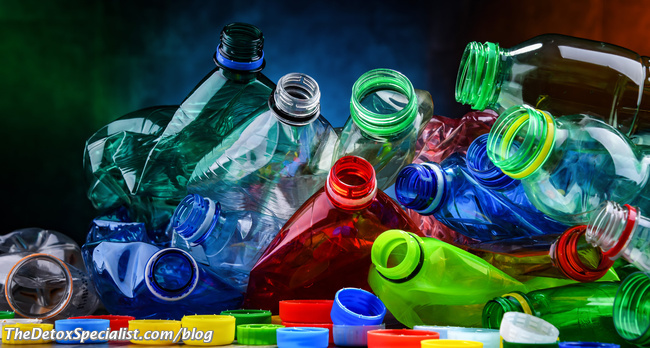Scientists have been warning us that Bisphenol A (BPA), a chemical that is used for the production of drink and food containers, food can linings and babies bottles, is toxic for a number of years. They are concerned that it leaches from the plastic into our food and water. Researchers have linked BPA to serious health risks but the manufacturing industry maintain that the amount the average person consumes is not enough to cause any harm.
Estrogen mimics and your health
Bisphenol A is classified as an estrogen mimic also known as gender benders or hormone disrupters. They interfere with the way your hormonal system functions and are not easily detoxified from the body naturally. US researchers found that Bisphenol A actually remains in the body much longer than experts previously believed.
It is thought that these hormone mimics contribute to conditions such as endometriosis, infertility, ovary dysfunction, miscarriage, excessive menstrual bleeding and cancers that are sensitive to estrogen. In high doses given to laboratory animals it causes bad behavior and insulin resistance which is linked to Diabetes 2 (late onset) and Metabolic Syndrome.
Although manufacturers have always maintained that that amount the average person consumes of BPA is far lower than can cause any health problems a recent study showed that the controversial gender bender chemical increased by 69% in the urine of people who drank for a week from polycarbonate bottles.
Previously, British researcher Dr. Melzer and his team found that in the people he tested the average BPA concentrations were higher in those diagnosed with cardiovascular diseases and diabetes. In fact, even a slightly raised BPA concentration was associated with a 39 percent increased risk of having heart disease and diabetes.
In other tests Health Canada, the national health regulatory agency, has discovered detectable levels of the hormone-disrupting compound in 96 percent of canned soft drinks and is considering a federal ban on the use of Bisphenol A. Canada has declared the chemical to be a major worldwide pollutant.
Should you be worried?
In spite of the fact that the website http://www.bisphenol-a.org/, which is run by the American Chemistry Council, argues that polycarbonate plastics are safe there is so much concern that the sale of baby bottles containing BPA was banned in San Francisco from 2006. There are concerns that simply warming the milk in bottle that contain Bisphenol A would cause even more of it in the milk. And the use of it in plastic containers has been limited by legislation in 9 states.
Canada banned the sale of baby bottles containing BPA last October. Around the same time the manufacturer of Nalgene water bottles, announced that it would recall from stores all bottles made with BPA following a finding by the National Toxicology Program that BPA exposure can cause cancer, as well as behavioral, developmental and reproductive problems. In the USA Whole Food Markets and others have taken Bisphenol A containing plastics off their shelves.
Related reading: Scary Truth of Toxic Chemicals in Plastic Food Containers and Packaging
Alternatives are available
The chemical makes plastic hard, translucent and shatter proof and the high costs of plastics with characteristics similar to polycarbonate have kept manufacturers from developing bottles with these materials. Nevertheless, with many concerned individuals looking for alternatives, some companies are producing drinking water bottles and babies bottles that do not contain the toxic chemical. If you value your health then it’s worth seeking out alternatives. Better to be safe than sorry,
Avoiding Plastics containing Bisphenol A
BPA is used in the production of epoxy resins and polycarbonate plastics often identified by the recycling #7 which can usually be found on the bottom of the container. Phthalate is another example of a hormone-mimicking chemical found in many common products. Plastics with recycling #3 contains both phthalate and PVC which is also suspect. Category 6 is polystyrene, another baddie. Styrofoam take-out containers leach toxins into your hot tea or coffee. Bottles designated #1 are for one time use only as the plastic breaks down with further use.
Related reading: How To Remove Microplastics From Your Body
So what to use?
Glass is probably the best option but heavy to carry and easily broken. Metal water bottles are alternatives but may not be free from BPA if they are lined with a plastic coating. The Environmental Working Group advises using stainless steel bottles that don’t have a plastic liner. Swiss made Sigg drinking bottles are available in a number of countries and claim to be safe and toxin free. Kanteen Klean bottle are made of stainless steel which they claim does not leach. Born Free make BPA free babies bottles and are available in the USA and UK.
Although you cannot avoid all toxins in your environment you can choose to avoid toxic Bisphenol A in plastic drinks bottles. In this toxic world every one you can avoid counts.
Related reading: 8 Effective Ways To Detox Toxins For Better Health




